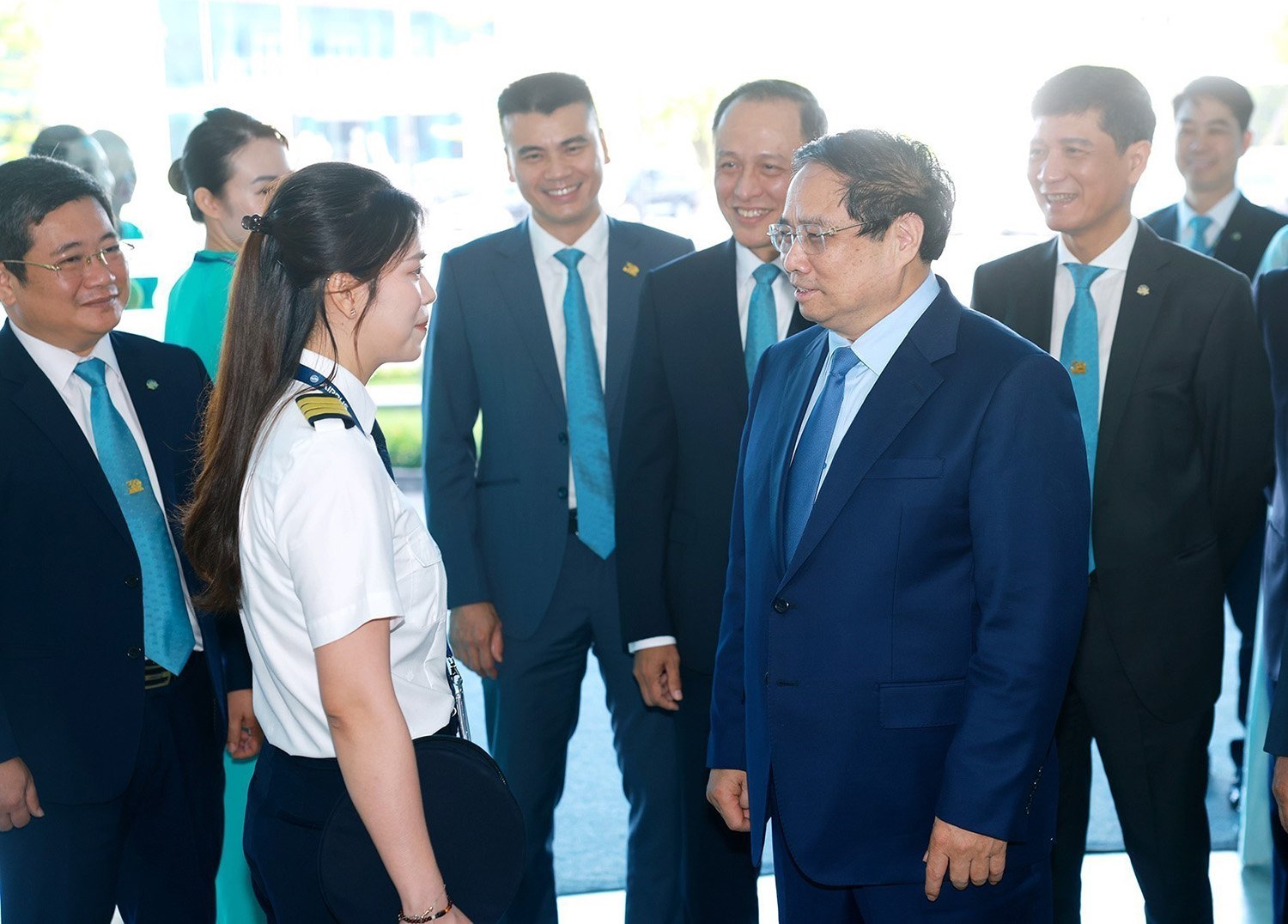
The pioneering role of state-owned enterprises
State-owned enterprises (SOEs) in Vietnam always hold a particularly important position, identified as the core force, leading the development of other economic sectors. The document of the 13th National Party Congress emphasized the need to "develop strong Vietnamese enterprises to become the core of the country's economy" in building an independent and autonomous economy. This means that SOEs have the mission of taking the lead, "leading, motivating, paving the way, guiding, attracting, and promoting enterprises of other economic sectors to develop together". In the context of the Fourth Industrial Revolution, SOEs must pioneer the application of high technology, participate in new fields, such as digital infrastructure, artificial intelligence, big data... to transform the economic structure towards modernity.
In line with that policy, the Party and the State have issued many major policies to promote science and technology , innovation and digital transformation. Recently, Resolution No. 57-NQ/TW, dated December 22, 2024, of the Politburo, on breakthroughs in science and technology development, innovation and national digital transformation, identified science and technology development, innovation and digital transformation as "the most important breakthrough, the main driving force for rapid development of modern production forces... to bring the country to breakthrough development". Resolution No. 57-NQ/TW emphasized the need to "strengthen the comprehensive leadership of the Party, promote the combined strength of the entire political system, and the active participation of entrepreneurs, enterprises and people" in the national innovation and digital transformation. Enterprises and people are identified as the center and the subject of this process, while the State plays a leading and creative role.
Vietnam Airlines Corporation - a key state-owned enterprise in the field of transportation is a typical example of the concretization of this policy. As a pillar of the economy and the aviation industry, Vietnam Airlines undertakes many important tasks; carrying out business missions and competing in the international aviation market. Implementing Resolution No. 57-NQ/TW of the Politburo, Vietnam Airlines identifies innovation and digital transformation as not only an intrinsic requirement to improve production and business efficiency, but also a key task to successfully implement the Party's policies and guidelines.
The current state of innovation and digital transformation at Vietnam Airlines
Determination from leadership and digital transformation strategy - consistency from awareness to action
At Vietnam Airlines, the digital transformation process began with a strong commitment from the highest leadership level. The Party Committee of Vietnam Airlines Corporation issued Resolution No. 55-NQ/ĐUTCT, “On the implementation of digital transformation in the period of 2021 - 2025”, which identified: Digital transformation at Vietnam Airlines Corporation is a continuous process, going through many levels to turn Vietnam Airlines into a modern digital airline in the era of the Fourth Industrial Revolution by applying digital technology to all areas, changing the management methods, leadership, working processes and corporate culture to improve operational efficiency and increase the competitiveness of Vietnam Airlines Group. This approach shows that Vietnam Airlines' leadership deeply understands that digital transformation is not just about applying technology, but about overall changes from processes to corporate culture.
Vietnam Airlines' Digital Transformation Strategy for the period 2022 - 2026 outlines a specific roadmap for Vietnam Airlines to become a "digital airline" by 2025, setting quantitative goals to measure results, demonstrating Vietnam Airlines' determination to fundamentally change the way it operates through digitalization. In 2023, Vietnam Airlines issued a Statement on Digital Culture and a Handbook on "The Power of Digital Culture", considering building a corporate culture that adapts to the digital era as the foundation for successfully implementing the digital transformation strategy. Every year, October is chosen as "Digital Transformation Month" for all officers and employees to focus on improving digital awareness and skills, ready for the long-term digital transformation journey. The consistency from awareness to action of Vietnam Airlines' leadership team is the prerequisite factor leading to the initial solid steps in digital transformation.
Vietnam Airlines' digital transformation activities have changed positively, with the enterprise's digital maturity level increasing from 30.1% in 2022 (starting level) to 73.9% in 2024, ranking among the state-owned enterprises with the best digital transformation results according to the assessment of the State Capital Management Committee at Enterprises.
Step by step building and developing digital infrastructure and connection infrastructure
Vietnam Airlines is implementing solutions to complete the modern connection infrastructure system, ensuring safety and efficiency for the airline's operations. At the same time, gradually implementing the goal of converting server infrastructure systems to the Cloud environment. By 2025, the capacity to use cloud computing is estimated to reach 45% with the conversion rate to using Cloud Server.
In particular, starting from August 2025, Vietnam Airlines will deploy In-Flight Connectivity (IFC) service for Airbus A350 aircraft, with the goal of equipping Wi-Fi on 10 A350 aircraft according to the approved plan. This pioneering IFC service will enhance the flight experience for customers and contribute to building the airline's digital ecosystem. During the trial period until the end of 2025, the airline will provide free 15-minute text messaging packages for all passengers, while providing premium Wi-Fi packages based on time for customers with higher connectivity needs. The sale of these packages will initially be carried out directly on the flight; from 2026, distribution will be expanded through online channels and ticketing partners (website, ticket office, agent, OTA).
Thanks to IFC, passengers can access the Internet anytime, anywhere during the flight, serving work, entertainment or seamless communication in the air. Continuous connectivity also allows Vietnam Airlines to provide more personalized digital services according to each customer's needs, thereby enhancing the experience and optimizing revenue on each flight. IFC is a strategic step in Vietnam Airlines' digital transformation roadmap, contributing to building a multi-service digital ecosystem and in line with the vision of developing personalized services, applying modern technology, aiming to achieve 5-star airline standards by 2030, affirming the airline's pioneering role in innovation and digital transformation in the Vietnamese aviation industry.
Comprehensive digital transformation across key areas of operation
In the period of 2020 - 2025, Vietnam Airlines will deploy, upgrade and replace core technology systems with new technology platforms, such as passenger service system (PSS), aircraft maintenance management system (MRO), centralized management information software system (VNA Digital Management), SkyHR human resource management system and SkyOffice electronic office system, flight operation management system, VNA Discovery Mobile App... These core technology systems serve management and operation, enhance customer experience and support employees. Basic business processes have been digitized from 40% in 2020 to over 80% now. In addition, Vietnam Airlines continues to build a project to develop the VNA AI platform, an application that helps optimize the general production and business activities of the Corporation.
In the field of flight operations and technical safety, Vietnam Airlines is a pioneer in applying high-tech solutions to optimize efficiency and ensure safety at the highest level. A prominent example is the VNA AI virtual assistant project - an AI application based on the GPT-4 large language model developed by Vietnam Airlines in cooperation with Microsoft. This virtual assistant allows operators, pilots, maintenance engineers, etc. to look up and ask questions about a series of aviation safety procedures and standards of the airline as well as regulations of IATA, ICAO, etc. through a natural language conversation interface. Integrated on the Azure OpenAI platform, VNA AI is capable of understanding context and providing accurate answers, citing original data sources, helping employees quickly and proactively access the latest safety information.
Vietnam Airlines also applies AI to data analysis in fuel management and flight route optimization, to propose solutions to optimize fuel consumption, reduce emissions, and save operating costs. In the commercial sector, the airline applies an intelligent revenue management system that uses AI to forecast market demand, automatically adjust ticket prices, and manage the optimal number of seats sold in real time, helping Vietnam Airlines increase seat utilization and revenue in a scientific manner. This effort has helped Vietnam Airlines maintain its on-time performance (OTP) index among the world's leading airlines even during the peak recovery period after the COVID-19 pandemic.
Developing digital ecosystem and e-commerce
A highlight in Vietnam Airlines' innovation strategy is the vision of expanding from a traditional airline to a digital business model with a multi-platform service ecosystem. Instead of being limited to air transport services, Vietnam Airlines is connecting and integrating many related services to create a closed value chain, bringing a complete experience to customers. Following this orientation, the airline is promoting links with the fields of logistics, e-commerce, ground transport and tourism to build an expanded, seamless and convenient service ecosystem for customers and partners. Through the integrated platform, Vietnam Airlines passengers can not only buy simple air tickets, but can also easily book hotel services, shuttle buses, tours and entertainment on the same application. This is a development step in line with the trend of service personalization and seamless connection in the new generation aviation industry.
The above steps show that Vietnam Airlines is not only digitally transforming internally but also proactively building a sustainable digital business ecosystem around its aviation sector. Although still operating on the air transport platform, Vietnam Airlines has been expanding its development space to affiliate services, thereby creating a multi-value product chain and optimizing customer experience. Vietnam Airlines focuses on researching its leading and dominant role, creating strategic links between aviation and tourism, trade, and investment, because only when such connections are made, Vietnam Airlines can contribute to the common value of the country and receive appropriate sharing for stable development. In fact, Vietnam Airlines has pioneered the restoration of almost the entire domestic flight network and 90% of international routes as soon as conditions allow after the COVID-19 pandemic, while opening new routes connecting important economic centers. This not only serves business goals, but also contributes to promoting tourism recovery, attracting investment and international trade, affirming the role of "economic, political and cultural bridge" of the national airline.
Promote innovation culture, digital culture and promote digital human resources
Vietnam Airlines pays special attention to promoting innovation from within and building a corporate culture that adapts to the digital age. Right from the first years of implementing digital transformation, the Party Committee and the leaders of the Corporation have identified people as the decisive factor for the success of digital transformation. The airline focuses on changing the mindset and working style of its employees, creating an environment that encourages initiative, learning and acceptance of change.
A typical initiative is the launch of Lotus Ideas software - a digital platform for internal initiative management, where all officers and employees can contribute ideas and monitor the process of realizing their ideas. The entire process from receiving to evaluating and approving ideas is carried out transparently on this platform. When an idea is submitted, it will go through many levels of approval: from the specialized department level, to the unit expected to apply it, and to the General Corporation Council if the idea is feasible and highly effective. This approach helps to make the initiative management process transparent and automated, while allowing for the expansion of the application scale; an idea, even if it originates from a small department, can still spread to other units with similar needs. Thanks to Lotus Ideas, good initiatives have the opportunity to be replicated throughout the system, enhancing the resonance and proactive spirit of creativity throughout the company.
Since its first pilot implementation in March 2022, Lotus Ideas has received 1,586 ideas, demonstrating the positive response from the frontline forces directly in contact with customers. Notably, 318 ideas were approved for implementation at the grassroots level and 42 ideas were approved for implementation at the Corporation level. Many of them have been officially recognized and rewarded: 67 ideas were commended at the unit level, 42 ideas were commended at the Corporation level.
Not just an internal tool, Lotus Ideas is identified as an important pillar in Vietnam Airlines' digital ecosystem, contributing to the goal of comprehensive digital transformation. Integrating Lotus Ideas into the BPM (business process management) platform not only helps officers and employees more conveniently register, update status and monitor the implementation process of ideas, but also opens up a systematic, transparent and objective initiative management mechanism.
To improve internal management efficiency and enhance employee experience, Vietnam Airlines identifies the development of Digital Culture as a sufficient condition to ensure the success of digital transformation. In 2022, Vietnam Airlines launched the Vietnam Airlines Digital Culture Statement. In 2023, with the launch of the Digital Culture Handbook, Vietnam Airlines became a pioneer in standardizing the elements and behaviors of Digital Culture at the enterprise, helping each employee not only understand but also act specifically in daily work, forming a mindset and habits for digital activities. The rate of employees who understand the strategy and understand their own impact in Vietnam Airlines' digital transformation journey is nearly 90%.
Regarding human resources, Vietnam Airlines has developed and issued a Digital Competency Framework as a basis for training courses to improve the digital capacity of employees. In addition to training, Vietnam Airlines has consulted human resource management models from large corporations, groups, and banks (such as Vietcombank) to adjust appropriate compensation mechanisms and policies to attract and recruit specialists and experts in the fields of digital transformation and information technology.
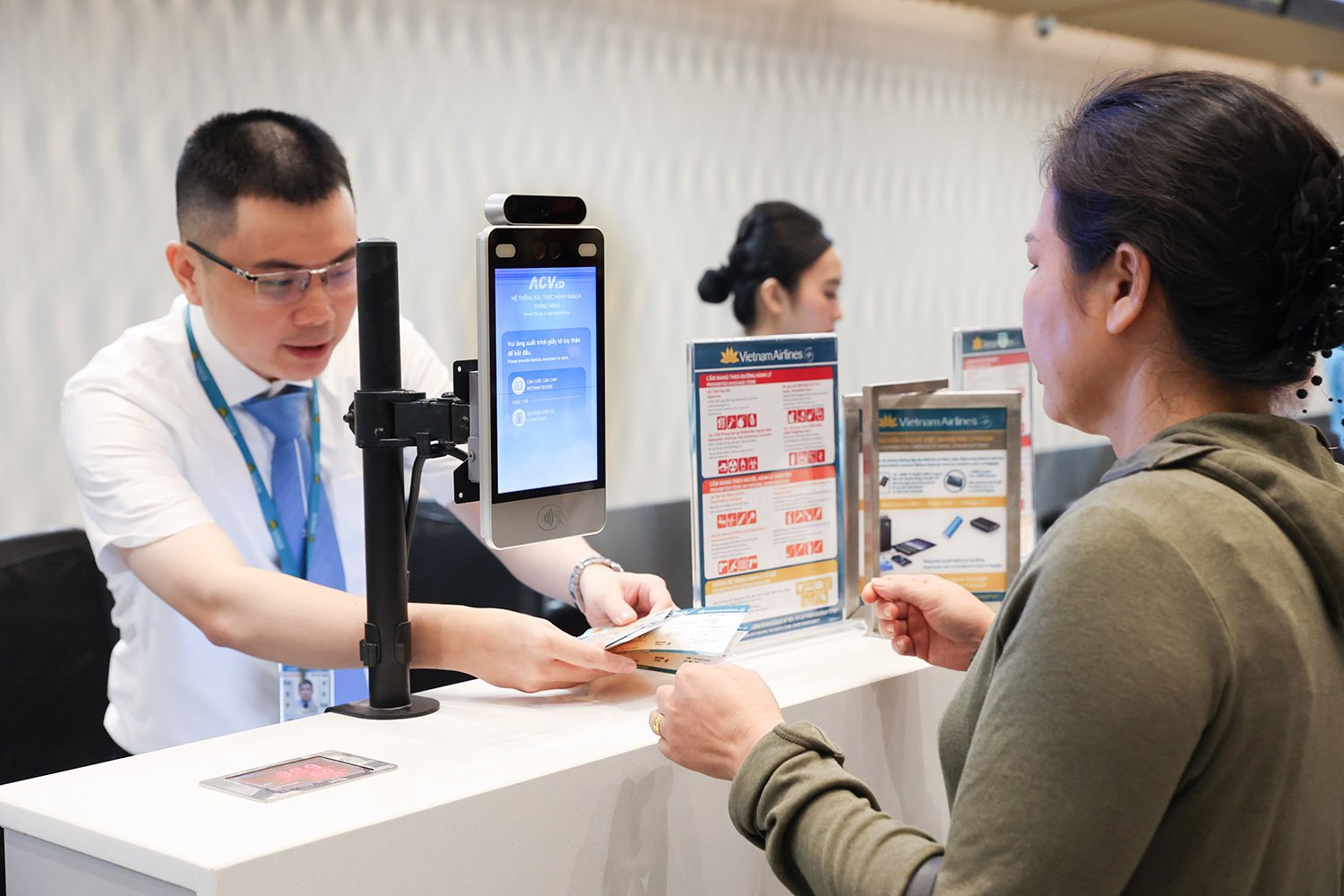
Achievements and lessons learned
The period 2020 - 2025 with many specific achievements of Vietnam Airlines in both digital transformation and production and business efficiency. Contributing to the above success are the significant role of digital transformation solutions and innovation initiatives that Vietnam Airlines has deployed. Thanks to digitizing processes and optimizing operations, the Corporation has saved and cut costs of thousands of billions of VND, significantly improving cash flow. The healthy financial situation creates a solid foundation for a new development phase. Vietnam Airlines' service quality has been improved and recognized internationally (1) . The Corporation's leaders consider this a driving force to continue to firmly pursue the goal of becoming a smart, modern and sustainable airline, worthy of leading the national aviation industry on the journey of digital development.
However, Vietnam Airlines also frankly acknowledged some limitations that need to be overcome. The efficiency and competitiveness of the Corporation are not commensurate with its potential, and the comprehensive restructuring is still slow, especially in terms of asset and capital structure. The innovation of the corporate governance model needs to be more closely linked with digital transformation, so that technology goes hand in hand with streamlining the organizational apparatus and improving the quality of human resources. This is both a challenge and an opportunity for the airline to continue to make breakthroughs. The clear recognition of limitations demonstrates the enterprise's spirit of learning and is also the basis for proposing directions and solutions for the future.
Based on practical experience, Vietnam Airlines has drawn a number of lessons to build a more effective digital transformation strategy for the 2025 - 2030 period:
First of all, the strong commitment and leadership of senior leaders are key factors. The direct participation of the Chairman of the Board of Directors and the General Director in the Digital Transformation Steering Committee has created unity in direction, creating a premise for a synchronous implementation process. Along with that, the centralized and clear management mechanism from the highest level to the specialized units has created a solid organizational foundation, helping the implementation of the digitalization program to take place effectively and consistently.
Next, building a systematic strategy with a clear roadmap has provided a consistent direction for the entire system. From 2022 to 2026, Vietnam Airlines has set specific goals associated with strategic pillars, such as data digitization, process automation, and customer experience enhancement. Important factors such as digital branding, digital culture, digital risk management, etc. are all integrated into the master plan, ensuring comprehensiveness in the process.
convert
In addition, personalizing customer service through technology applications, such as facial recognition and process automation, has been contributing to improving the quality of experience at every touchpoint. Investing in a unified data platform is also considered a prerequisite to optimize analytics, support timely decision making and improve passenger satisfaction.
Notably, Vietnam Airlines clearly identifies the importance of investing in the application of modern technology, especially artificial intelligence (AI), the Internet of Things (IoT), and synchronized core systems. These technologies not only help improve operational efficiency, but also enhance forecasting capabilities, save costs, and increase labor productivity.
During the transformation process, the building of a digital ecosystem through strategic cooperation with partners is also promoted to expand services, increase value and revenue. At the same time, ensuring information security is a top priority with the application of international security standards, comprehensive protection of customer data and internal systems.
Finally, developing a culture of innovation and digital human resources are two core factors to ensure sustainability. Vietnam Airlines identified the need to create an environment that encourages creativity, where every staff member has the opportunity to contribute ideas and is equipped with appropriate technological skills, in order to quickly adapt to the transformation trend in the digital age.
This lesson is the basis for Vietnam Airlines to continue to firmly step on the path of digital transformation, towards the goal of becoming a modern, efficient and customer-centric national airline.
For Vietnam Airlines to pioneer in taking off in the digital age
Entering the period 2025 - 2030, Vietnam Airlines is facing new opportunities and many challenges in a changing world. Vietnam Airlines sets the overall goal of building Vietnam Airlines to develop "smartly, modernly and sustainably", continuing to affirm its role as a national airline, contributing to enhancing the country's position in the digital age.
The focus of this orientation is to exploit the enormous potential of AI to improve operational efficiency, optimize costs, increase labor productivity and improve customer experience. To realize the goal, Vietnam Airlines synchronously deploys strategic solution groups, demonstrating its determination to pioneer in the field of digital transformation of the Vietnamese aviation industry.
First of all, Vietnam Airlines focuses on building a big data platform and an intelligent management system. Comprehensively connecting data between the operations, trade, finance, engineering and service blocks will help the company improve its analysis and forecasting capabilities, thereby promptly grasping market demand, controlling risks and making more accurate business decisions.
Another prominent priority is to invest in research and application of artificial intelligence and general artificial intelligence (AI/GenAI) technology into the entire business chain. AI is deployed in core areas such as smart revenue management, flight schedule optimization and operations management, customer service and marketing personalization, fuel optimization, and real-time decision support - all to enhance proactiveness and flexibility in
operate.
Along with that, Vietnam Airlines focuses on developing an ecosystem of smart digital products and services, putting customers at the center. Artificial intelligence will play a key role in personalizing flight itineraries, suggesting suitable products and integrating experiences throughout from booking to post-flight.
To promote technological innovation, Vietnam Airlines strengthens international cooperation, receives and tests advanced aviation technology, and establishes the Vietnam Airlines Innovation Center - a place to research, develop and commercialize technology products under the brand name "Make by Vietnam Airlines" based on AI, big data and open architecture.
Along with technological development, Vietnam Airlines also invests heavily in high-quality human resources. In-depth training programs on artificial intelligence, data analysis, digital platform management and technology product development are being systematically implemented. At the same time, the national airline is also proactively building an open innovation ecosystem, connecting with research institutes, universities and technology enterprises to promote innovation internally and in the industry. In addition, a flexible working environment, policies to encourage initiatives, a network of experts and a team of "digital transformation ambassadors" also need to be focused on to create a driving force for sustainable innovation.
In a broader view, the story of Vietnam Airlines in the period 2020 - 2025 and vision to 2030 is a vivid demonstration of the pioneering role of SOEs in innovation and digital transformation. With the right leadership and direction, with strategic vision, persistent efforts, and pioneering in innovation and digital transformation, a state-owned enterprise can absolutely rise up and compete on par with leading international enterprises in the spirit of Resolution No. 57-NQ/TW, aiming to create new momentum and breakthroughs in science, technology, innovation and digital transformation, leading the country into a new era. Vietnam Airlines has been, is and will continue that pioneering mission, worthy of its role as the main force of the state economy in the era of the Fourth Industrial Revolution. The lessons learned and achievements of Vietnam Airlines promise to contribute to strengthening trust and inspiring the spirit of innovation in the entire enterprise system, thereby contributing to the common goal of Vietnam becoming a modern industrialized country with high average income by 2030 thanks to successfully taking advantage of the opportunities of digital transformation and the scientific and technological revolution./.
-------------------
(1) Vietnam Airlines has been honored twice as "Excellent Digital Transformation Enterprise" at the Vietnam Digital Transformation Awards in recent years. In 2023, Vietnam Airlines was voted by APAC CIO Outlook magazine into the Top 10 leading technology application enterprises in the aviation industry in the Asia-Pacific region, a testament to the airline's technological and innovation reputation in the international market. In June 2025, Vietnam Airlines was honored to be awarded the Top Science - Technology, Innovation and Digital Transformation Enterprise (Top Industry 4.0 Vietnam for the 4th time), recognized as a pioneering enterprise in innovation and technology application in production and business. Regarding the awards for top science - technology, innovation and digital transformation enterprises, see: Vietnam Airlines honored at Top Industry 4.0 Vietnam in 2025, https://spirit.vietnamairlines.com/cat-canh-cung-tu-hao/vietnam-airlines-duoc-vinh-danh-tai-top-cong-nghiep-4-0-viet-nam-nam-2025.html, June 24, 2025
Source: https://tapchicongsan.org.vn/web/guest/lanh-te/-/2018/1125302/doanh-nghiep-nha-nuoc-voi-roi-tro-tien-phong-doi-moi-sang-tao-va-chuyen-doi-so--thuc-tien-tu-tong-cong-ty-hang-khong-viet-nam.aspx



![[Photo] Lao President Thongloun Sisoulith and President of the Cambodian People's Party and President of the Cambodian Senate Hun Sen visit the 95th Anniversary Exhibition of the Party Flag Lighting the Way](https://vphoto.vietnam.vn/thumb/1200x675/vietnam/resource/IMAGE/2025/9/2/3c1a640aa3c3495db1654d937d1471c8)
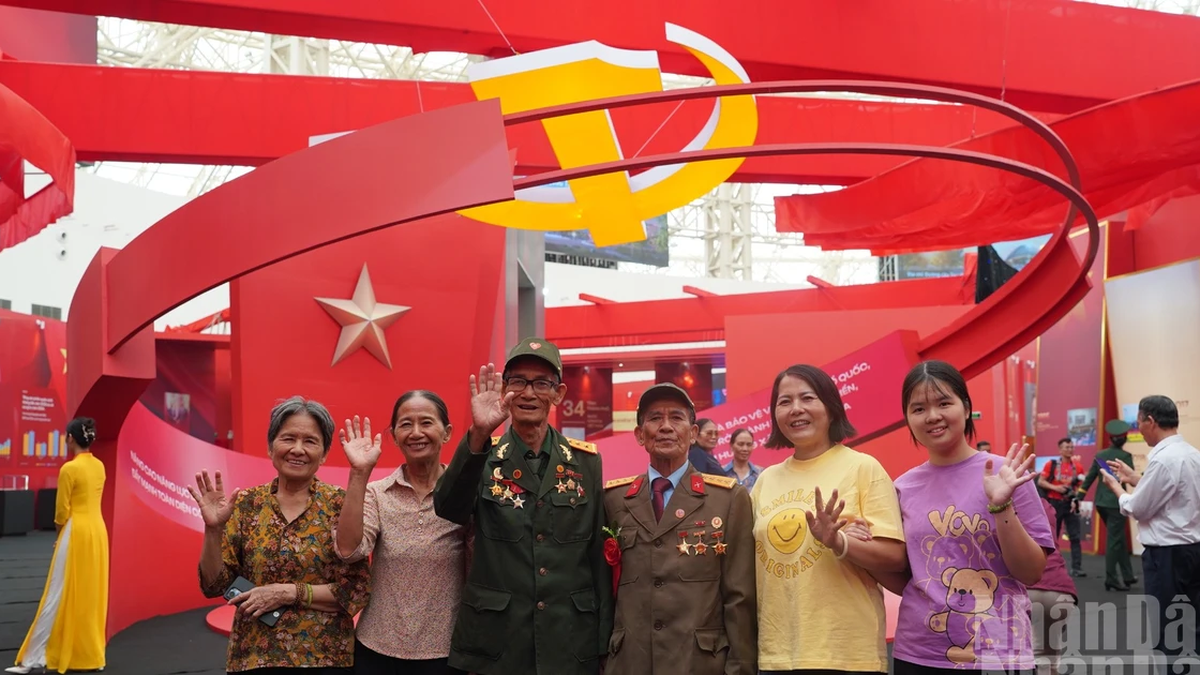
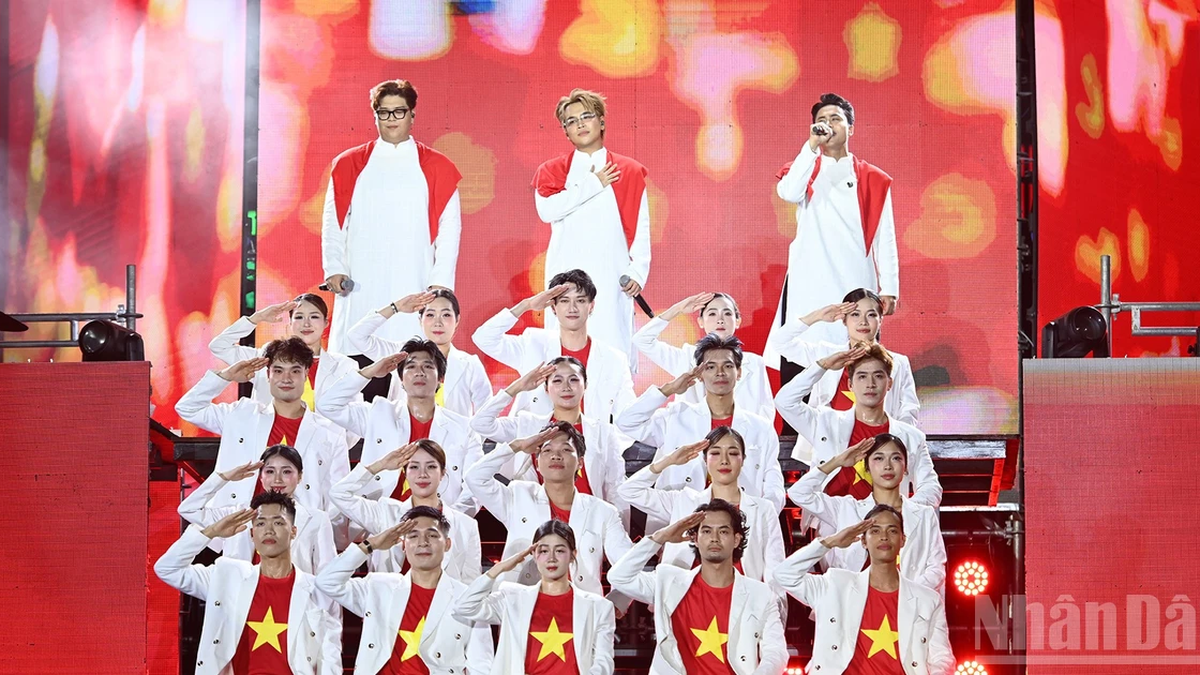
![[Photo] National Assembly Chairman Tran Thanh Man meets with First Secretary and President of Cuba Miguel Diaz-Canel Bermudez](https://vphoto.vietnam.vn/thumb/1200x675/vietnam/resource/IMAGE/2025/9/2/c6a0120a426e415b897096f1112fac5a)
![[Photo] Special art program "Da Nang - Connecting the future"](https://vphoto.vietnam.vn/thumb/1200x675/vietnam/resource/IMAGE/2025/9/2/efdd7e7142fd45fabc2b751d238f2f08)
![[Photo] Ho Chi Minh City residents show their affection to celebrate the 80th anniversary of the August Revolution and National Day September 2](https://vphoto.vietnam.vn/thumb/1200x675/vietnam/resource/IMAGE/2025/9/3/55d860cbb63a40808e1e74ad9289b132)








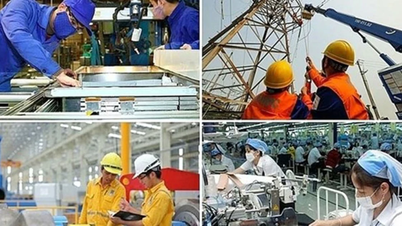

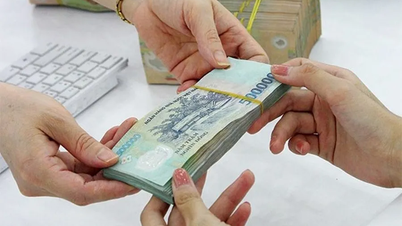

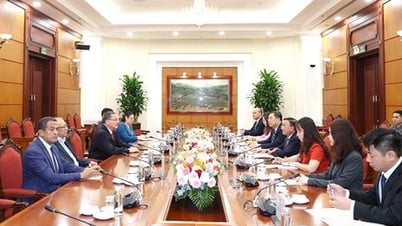


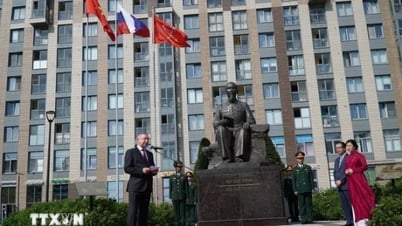



![[Video] Petr Tsvetov: Vietnam is warm and familiar](https://vphoto.vietnam.vn/thumb/402x226/vietnam/resource/IMAGE/2025/9/2/5f0c1739d6c34747b2da4c57cc5dc013)


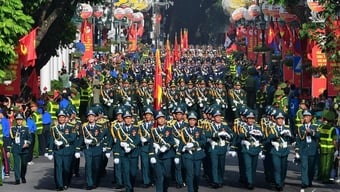














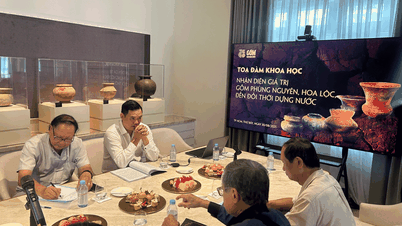










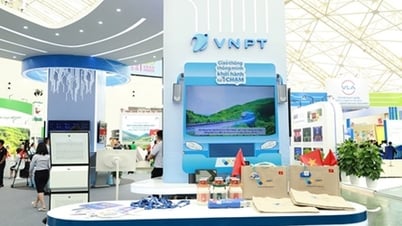






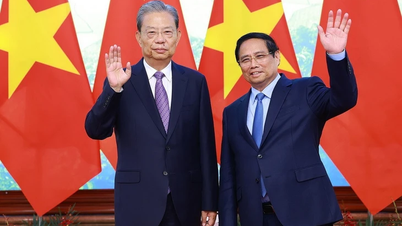
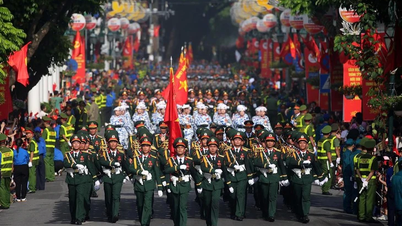








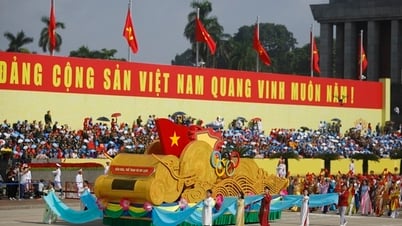

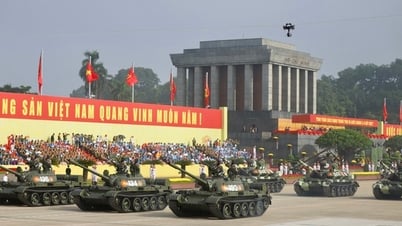
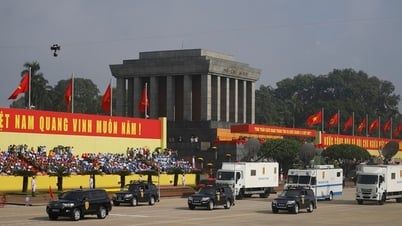




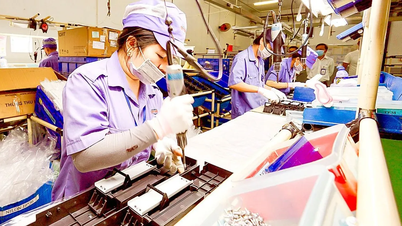

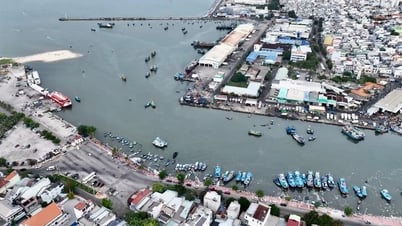










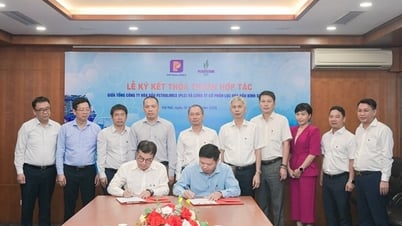
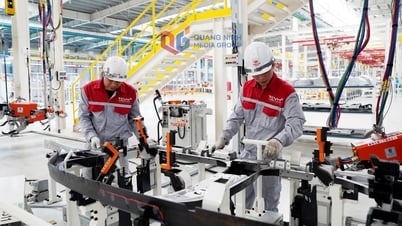

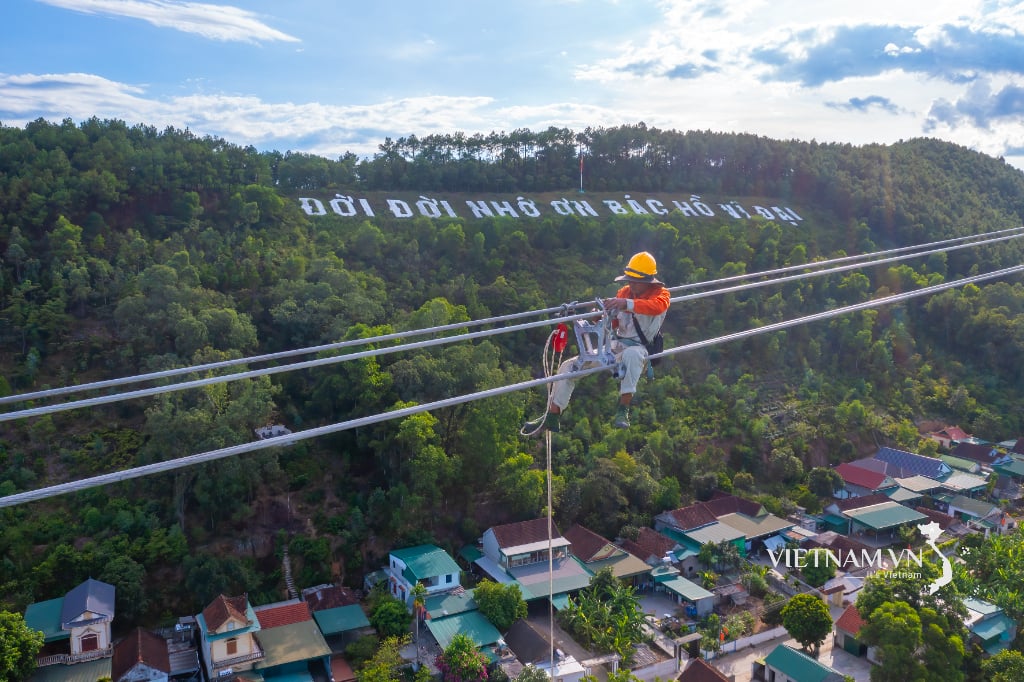



Comment (0)